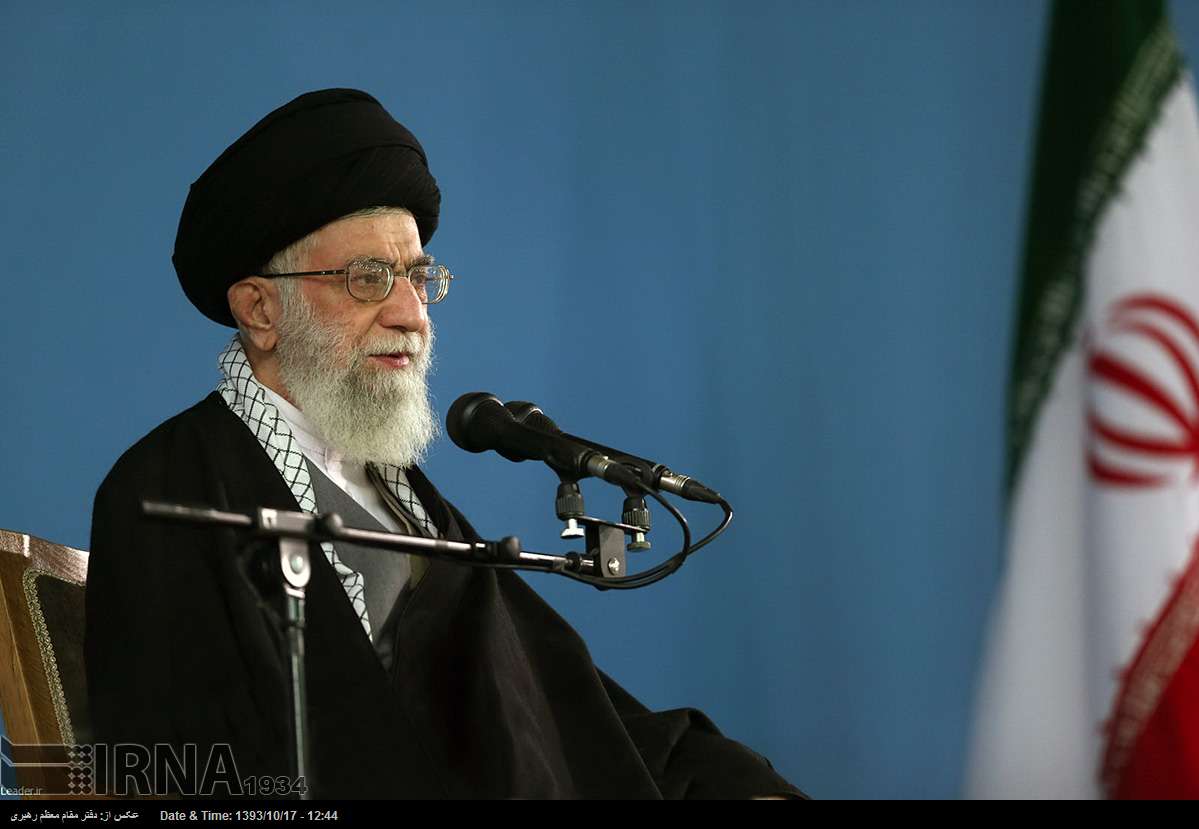 Iranian leaders have rejected the representation of Islam by the Paris shooters and in Western media, encouraging people instead to look in to the humanist and ethical founding principles of the religion in order to avoid fear and hatred.
Iranian leaders have rejected the representation of Islam by the Paris shooters and in Western media, encouraging people instead to look in to the humanist and ethical founding principles of the religion in order to avoid fear and hatred.Iranian Supreme Leader, Seyed Ali Khamenei, in a message aimed at�European and North�American youth, asked on Wednesday�that�Islam be considered without�any prejudice, and warned about�portraying terrorists as representatives of the religion.
The Ayatollah said the current image�of�Islam in the Western world was of a��horrible enemy,� which would�thereby provoke�horror and hatred.
After recalling the long list of attempts in the political history of the �West� to depict the religion this way, he evoked the recent events that occurred in France, as well as in other Western countries, which motivated him make the declarations.
�Now I would like you to ask yourselves why the old policy of diffusion of 'phobia' and hatred has focused on Islam and the Muslims with an unprecedented intensity,� he said, suggesting that�it was�in the interests of ��world superpowers��to marginalize�Muslim thought.
He encouraged the youth of the Western world to study and investigate such things on their own, and to obtain a direct and first-hand knowledge for the�religion, in order to fight prejudices and fear.
�I will not insist so you accept my -or whoever else's- interpretation of Islam,� he added.��Do not allow your own terrorists to present themselves, in a hypocritical way, as representatives of Islam,� warned Khamenei, recalling the humanist and ethical founding principles of the religion.
�Have you ever asked yourselves how the values established in the Koran have led to the greatest scientific and intellectual civilization of the world... through several centuries?� he said.
He warned of the danger�of allowing the media to create��an emotional abyss� between reality and its representation.
On the same day, the president of the Iranian�assembly, Ali Lariyani, affirmed that the Muslim world advocated peace and security in the world, in Istanbul, Turkey, where he was attending the 10th Conference of the Organization for Islamic Cooperation (OCI).
�The damages of the economic crisis rooted in the economic issues of Western countries are also affecting the Muslim ones,� he added.
�Democracy, independence, and recovery of the Muslim identity are the main demands of the Muslim peoples,� he explained.
Although the religious disputes inside the Muslim world have affected its unity, the legislator recalled that the distinct branches of Islam shared the same book, the Koran, and followed the same prophet, Muhammad. He argued that�religious disputes are not related to the doctrine, but have been generated by the interventions of Western countries over the past decade, including in Afghanistan, Iraq, and Syria, extending terrorism to the whole Middle East, under the pretext of fighting terrorism, he argued.
By Telesur
The Iran Project is not responsible for the content of quoted articles.










